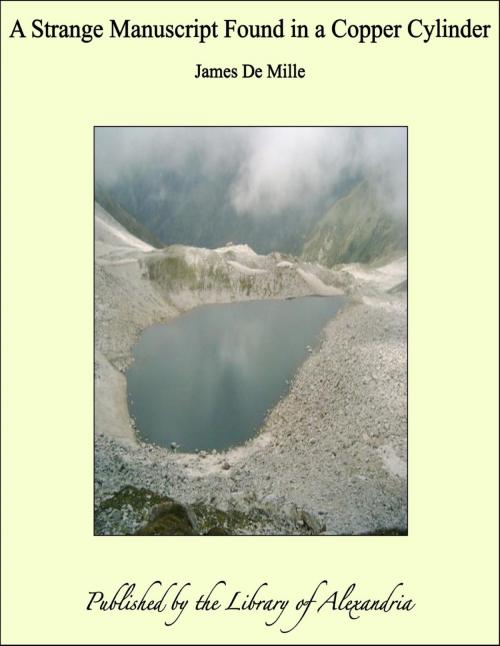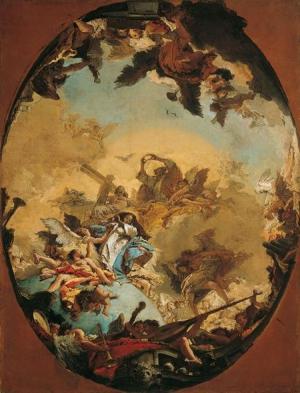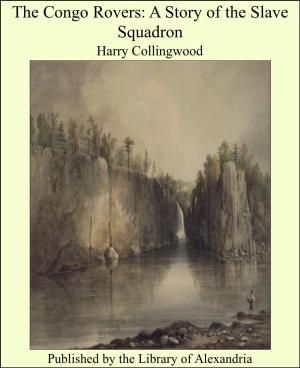A Strange Manuscript Found in a Copper Cylinder
Nonfiction, Religion & Spirituality, New Age, History, Fiction & Literature| Author: | James De Mille | ISBN: | 9781465553195 |
| Publisher: | Library of Alexandria | Publication: | March 8, 2015 |
| Imprint: | Language: | English |
| Author: | James De Mille |
| ISBN: | 9781465553195 |
| Publisher: | Library of Alexandria |
| Publication: | March 8, 2015 |
| Imprint: | |
| Language: | English |
THE FINDING OF THE COPPER CYLINDER It occurred as far back as February 15, 1850. It happened on that day that the yacht Falcon lay becalmed upon the ocean between the Canaries and the Madeira Islands. This yacht Falcon was the property of Lord Featherstone, who, being weary of life in England, had taken a few congenial friends for a winter's cruise in these southern latitudes. They had visited the Azores, the Canaries, and the Madeira Islands, and were now on their way to the Mediterranean. The wind had failed, a deep calm had succeeded, and everywhere, as far as the eye could reach, the water was smooth and glassy. The yacht rose and fell at the impulse of the long ocean undulations, and the creaking of the spars sounded out a lazy accompaniment to the motion of the vessel. All around was a watery horizon, except in the one place only, toward the south, where far in the distance the Peak of Teneriffe rose into the air. The profound calm, the warm atmosphere, the slow pitching of the yacht, and the dull creaking of the spars all combined to lull into a state of indolent repose the people on board. Forward were the crew; some asleep, others smoking, others playing cards. At the stern were Oxenden, the intimate friend of Featherstone, and Dr. Congreve, who had come in the double capacity of friend and medical attendant. These two, like the crew, were in a state of dull and languid repose. Suspended between the two masts, in an Indian hammock, lay Featherstone, with a cigar in his mouth and a novel in his hand, which he was pretending to read. The fourth member of the party, Melick, was seated near the mainmast, folding some papers in a peculiar way. His occupation at length attracted the roving eyes of Featherstone, who poked forth his head from his hammock, and said in a sleepy voice: "I say, Melick, you're the most energetic fellah I ever saw. By Jove! you're the only one aboard that's busy. What are you doing
THE FINDING OF THE COPPER CYLINDER It occurred as far back as February 15, 1850. It happened on that day that the yacht Falcon lay becalmed upon the ocean between the Canaries and the Madeira Islands. This yacht Falcon was the property of Lord Featherstone, who, being weary of life in England, had taken a few congenial friends for a winter's cruise in these southern latitudes. They had visited the Azores, the Canaries, and the Madeira Islands, and were now on their way to the Mediterranean. The wind had failed, a deep calm had succeeded, and everywhere, as far as the eye could reach, the water was smooth and glassy. The yacht rose and fell at the impulse of the long ocean undulations, and the creaking of the spars sounded out a lazy accompaniment to the motion of the vessel. All around was a watery horizon, except in the one place only, toward the south, where far in the distance the Peak of Teneriffe rose into the air. The profound calm, the warm atmosphere, the slow pitching of the yacht, and the dull creaking of the spars all combined to lull into a state of indolent repose the people on board. Forward were the crew; some asleep, others smoking, others playing cards. At the stern were Oxenden, the intimate friend of Featherstone, and Dr. Congreve, who had come in the double capacity of friend and medical attendant. These two, like the crew, were in a state of dull and languid repose. Suspended between the two masts, in an Indian hammock, lay Featherstone, with a cigar in his mouth and a novel in his hand, which he was pretending to read. The fourth member of the party, Melick, was seated near the mainmast, folding some papers in a peculiar way. His occupation at length attracted the roving eyes of Featherstone, who poked forth his head from his hammock, and said in a sleepy voice: "I say, Melick, you're the most energetic fellah I ever saw. By Jove! you're the only one aboard that's busy. What are you doing















